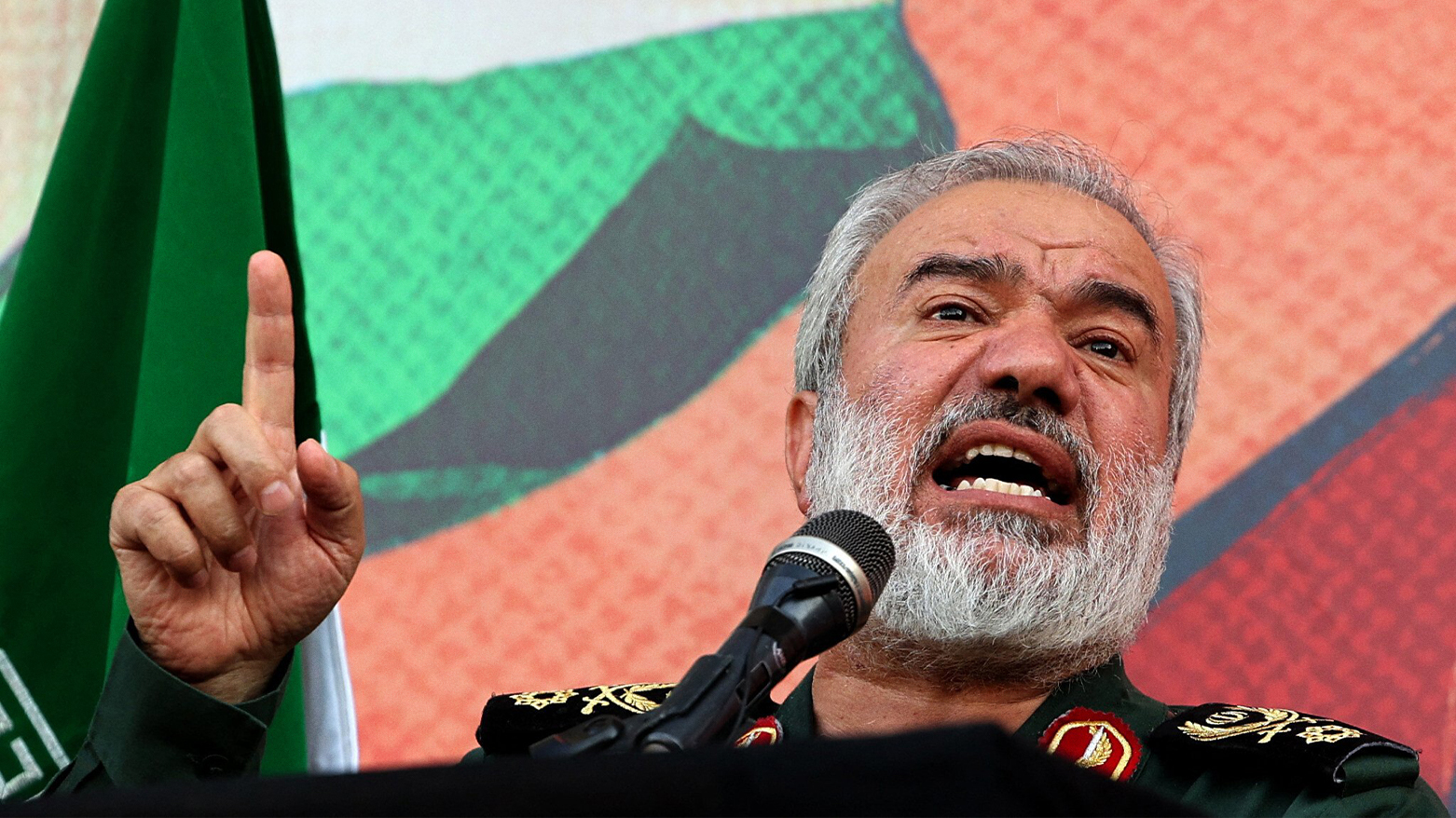IRGC Deputy Commander Vows 'Constant Readiness,' Says Israel Will Act If It Senses Success
IRGC's Deputy Commander tells ILNA that forces are at "100% readiness," warns Israel will act if it senses success, and claims Iran dealt a "great blow" to its enemies in a recent conflict, which he termed a "second Sacred Defense."

ERBIL (Kurdistan24) — In an interview that blended ideological declarations with strategic military assessments, the Deputy Commander-in-Chief of Iran’s Islamic Revolutionary Guard Corps (IRGC) has asserted that his forces maintain a state of "one-hundred-percent readiness" against potential aggression, while warning that Israel will "certainly act" if it ever perceives an opportunity for success.
Speaking to the Iranian Labour News Agency (ILNA), Brigadier General Ali Fadavi portrayed the conflict with Israel as an eternal struggle and claimed that in a recent confrontation, Iran dealt a "great blow" to its adversaries, forcing them to be the ones to "request an end to the conflict."
The high-ranking commander’s comments provide a significant window into the IRGC's current posture and worldview, emphasizing a doctrine of perpetual vigilance rooted in both religious and military commands.
When questioned by ILNA about the armed forces' readiness in the event of a repeat of Israeli aggression against Iranian soil, Fadavi was unequivocal. "Certainly, one of the issues that is a constant focus for the IRGC—as it is both a command from the Commander-in-Chief of the Armed Forces and a command from the Quran—is one-hundred-percent readiness," he stated.
He further linked this state of preparedness directly to the identity of the IRGC, noting, "The verse inscribed on the chests of us Guardsmen is based on this very readiness." He assured that this operational status is not a temporary measure, adding, "This process (the readiness of the armed forces) has not been and cannot be put on hold."
Fadavi also offered a positive assessment of recent military developments, stating, "The strength and capability of our forces have been very good in this short period, and this trend is ongoing."
Beyond military hardware and troop preparedness, Fadavi placed a heavy emphasis on national unity as a critical pillar of Iran's defense strategy. He described the role of the public as "fundamental," arguing that a united populace is the country's greatest asset.
"The people, who have a key role in this unity, can achieve the greatest benefit from it if they remain united," he told the news agency. In his remarks, he framed efforts to undermine this cohesion as a central goal of Iran's enemies, whom he collectively referred to as "the wicked of the world." He stated, "The wicked of the world want this unity to decrease, and the people must be vigilant to ensure it does not weaken, which, praise be to God (Alhamdulillah), was maintained even in the most difficult conditions."
Brigadier General Fadavi went on to claim that this strategy by foreign adversaries had backfired during a recent period of heightened tension.
"The hope of the wicked was that if they attacked, the people's unity would also weaken, but the opposite happened," he asserted. In a particularly powerful and historically resonant statement, he characterized a recent conflict as a "second Sacred Defense," a term that deliberately invokes the national memory of the grueling eight-year Iran-Iraq war of the 1980s. He claimed the public solidarity witnessed during this recent period was without precedent.
"The unity that emerged in the 'second Sacred Defense' was unparalleled," he said, adding that this was achieved "despite the extensive plans that the wicked had carried out in the 1390s and in the year 1401 [Iranian calendar]."
When asked by ILNA whether Israel still constitutes a threat to Iran, the IRGC Deputy Commander-in-Chief framed the entire conflict in broad, existential terms.
"It is natural that the struggle between truth and falsehood has existed from the beginning, exists now, and will continue to the very end; it will never be over," he declared.
This characterization portrays the geopolitical rivalry not as a conventional dispute between nation-states, but as a permanent and ideological confrontation. According to Fadavi, the likelihood of direct aggression is a matter of strategic calculation by the adversary. "This issue (the Zionist regime's repeated aggression) depends on whether these wicked ones sense a possibility of success; in that case, they will certainly act," he said.
However, the commander's central message was one of triumphant deterrence and strategic victory. He claimed that in a recent, unspecified confrontation, Iran had decisively prevailed.
"However, a great blow was dealt to them," he stated, before expanding on a narrative of Iran standing alone against a global coalition of adversaries. "Everyone has realized that on the opposing side, the entire wicked world was present, and on our side of the field, we were alone," he asserted.
In his account of the conflict's resolution, Fadavi offered a definitive statement of victory, concluding, "Yet, they were the ones who raised their hands and requested an end to the conflict."